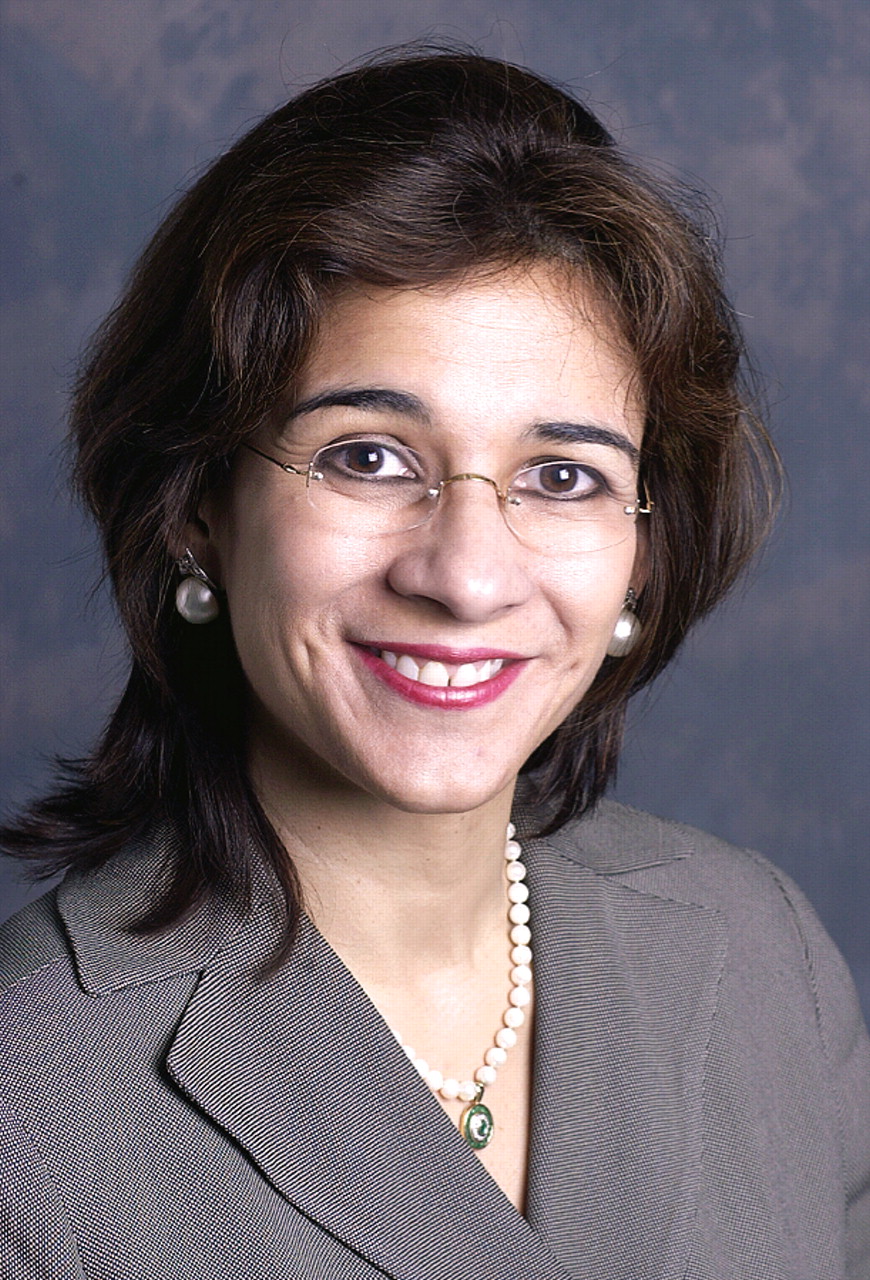Maria Oquendo, M.D., is pursuing a vibrant psychiatric career at Columbia University. As a professor of clinical psychiatry, she conducts full-time research and teaches courses in cross-cultural psychiatry and affective disorders. As vice chair of education, she oversees all programs for medical students, residents, and clinical and research fellows pursuing psychiatric training.
She is also making some valuable research contributions, psychiatrists who know her attest.
She is a leading authority on cross-cultural psychiatry in the United States, Deborah Cabaniss, M.D., an associate clinical professor of psychiatry at Columbia, said in an interview.
Charles Nemeroff, M.D., chair of psychiatry at Emory University, told Psychiatric News that her major research contributions have been“ identification of neurobiological markers in suicide and translational research in suicide and depression that spans the bench and the bedside.”
“Her work on the basic neurobiology of bipolar disorder and the clinical implications of suicidality in mood disorders has been an important contribution to the field,” Madhukar Trivedi, M.D., a professor of psychiatry at the University of Texas Southwestern Medical School, noted.
In Oquendo's opinion, one of the most important discoveries that she and her research colleagues have made is the discrepancy between the high rates of depression in Hispanics, especially Puerto Ricans, and their low rates of completed suicide.
“This finding presents an opportunity for us to learn about what kinds of things—cultural, genetic, or otherwise—protect some groups from suicide,” she said.
It All Started in Spain
Oquendo's achievements are the culmination of a life's journey that started in Spain. She was born there in 1960 to a Spanish mother and a Puerto Rican father, grew up in Puerto Rico, went to college at Tufts University in Massachusetts, attended medical school at Columbia University, did her psychiatry residency at Cornell University, and became a full-fledged psychiatrist in 1988. After that, she joined the faculty of Columbia University.
Colleagues attribute her various achievements to a number of characteristics.
“She is very articulate, diligent, innovative, and a superb clinical researcher addressing some of the most important, clinically relevant topics in mood disorders,” Trivedi said.
“She is persistent to the point of doggedness, able to remain calm under stress, and able to make decisions quickly,” Robert LewisFernandez, M.D., an associate professor of psychiatry at Columbia University, added.
“She is excellent with group dynamics,” Cabaniss pointed out.“ Her savvy in that area really helps her as an administrator, I think. Also, she has a hearty laugh that is infectious and wonderful. I think people really gravitate to her because of that.”
Oquendo is also a risk taker in the best sense of the term. At age 35, she had what she describes as “a very interesting, comfortable, and secure job”—heading up the psychiatric community service unit at Columbia, where most of the patients were Hispanic. At this point, according to Cabaniss, she was also considered one of the leading experts on cross-cultural psychiatry in the United States. Yet Oquendo approached a psychiatric researcher at Columbia, John Mann, M.D., and said that she would like to study depression in the Hispanic population. Mann said that it was difficult to do psychiatric research only part time, but if she was willing to make a full-time commitment, she could join his research team. So she thought about it for several days; talked it over with her husband, Dana Cazzulino, Ph.D., a biochemical engineer; and then decided to take the risk.
“This was not going to be an easy path, but I decided that it was time for a change and that I was ready to take it on,” she said.
Several Interests Converged
In her career, Oquendo has likewise managed to meld a number of interests.
For instance, during college she majored in math and was thinking about becoming a mathematician. Now, as a psychiatric scientist, she works closely with biostatisticians and other math types and is able to use her math skills in a very tangible way, where, she said, “I can bring about very concrete improvements in treatments and interventions for people.”
Certainly, her career has had its challenges, Oquendo admitted. Probably the greatest has been balancing work and family, she said. She and her husband have two adolescent sons. “I think it is something that we female psychiatrists don't talk about enough. It's not that easy to do. It takes a lot of planning and effort.”
But her career is bringing her rich dividends as well, she avowed. “I think that learning how to address scientific questions, developing mentoring relationships, and teaching are the most rewarding parts. I also get a great amount of pleasure from writing. I find it gratifying that my writing is well regarded.” (Indeed, according to Cabaniss, Oquendo is “hugely prolific,” having published some 160 papers in the 13 years that she has worked as a psychiatric researcher.)
Finally, where does Oquendo want to go next in her career? She would like to establish a network of collaborative psychiatric research centers around the world, she said. In fact, she is already moving in that direction.
“I have established a very close collaboration with psychiatric researchers at a University in Brazil, at a University in Austria, and at several universities in Spain,” said Oquendo. “I am mentoring young investigators who come to work with me, learn how to be investigators, and then return to their own countries to start research projects. I am planning to start an international training fellowship here at Columbia, targeting psychiatric researchers in developing countries. I have been talking with potential donors and collaborators. There are many universities around this country with terrific resources and internationally oriented faculties, and we could work together to foment this type of project.” ▪

